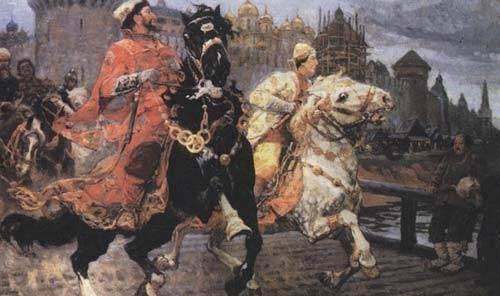First of all, we need to understand where Siberia is, and its broad geographical definition is a vast area from the Ural Mountains in the west, to Cape Jezhnev in the east, to Mongolia and the Waixing'an Mountains in the south, and during the Yuan Dynasty of China, most of the land here was theoretically under the jurisdiction of the Lingbei Province of the Yuan Dynasty.

As for how Russia conquered this place, we shall start from the beginning, the earliest Russia was only a vassal of the Mongol regime in the Chincha Khanate in Europe, and had to pay taxes and grain to the Mongols every year. Around the 15th century, the Mongols were caught up in a power struggle.
After decades of killing, the great Chincha Khanate was divided into "countless" khanates, and russia's predecessor, the Grand Duchy of Moscow, took advantage of the weakness and independence of the Mongols at this time, and at the same time formed a sovereign khanate called the Siberian Khanate in Siberia.
Since the Khanate had the Ural Mountains as a patronage, when the Grand Duchy of Moscow and the various khanates were fighting for dominance, the Siberian Khanate was alone, but the Russians were not prepared to let it go.
In the middle of the 16th century, Tsar Ivan IV was a very ambitious monarch who was bent on establishing an immortal deed against his ancestor "Peter the Great", so when the war against Europe entered a stalemate, Ivan IV immediately set his eyes on the Siberian Khanate in the east.
Because the distance was too far, in order to reduce the "cost of expedition" for the Russian national army, the Tsar encouraged the local Russian nobles to form their own "mercenaries" to protect themselves and help the Tsar expand his territory.
One of the most notable "mercenaries" was the Cossack army formed by Yermak, which was equipped with the most advanced Russian firearms and artillery at the time, while their rivals, the Siberian Khanate, did not realize that the era of hot weapons had quietly arrived.
Relying on the power of firearms, the actions of the Russian army were often massacres of the cavalry of the Siberian Khanate armed with cold weapons, and the cavalry of the Siberian Khanate at that time still believed that the firearms in the hands of Russia were "burning sticks".
Thinking that as long as you can get close, you can sweep across Europe like the army of your ancestor Genghis Khan, but the truth is cruel, after decades of development, the power of firearms has changed, and large-scale charges are often exchanged for "invalid" death data.
On October 26, 1581, the capital of the Siberian Khanate, Kasrek, fell, and the last standard sovereign state of Siberia disappeared, after which the Russian "expeditionary army" often encountered tribal-level armed forces on the way eastward.
Thus Russia was able to quickly move its control over the land to Cape Jezhnyov, and to the south, on September 7, 1689, after experiencing an unpleasant "full firepower", Russia and China signed the Treaty of Nebuchu to confirm the border between "China and Russia".